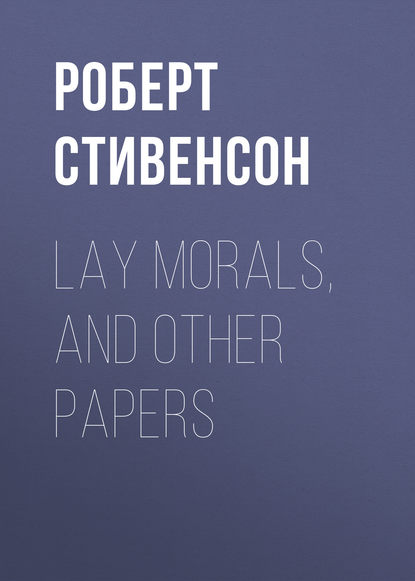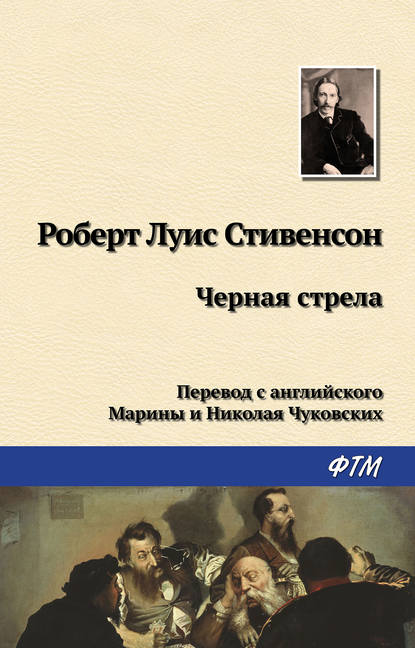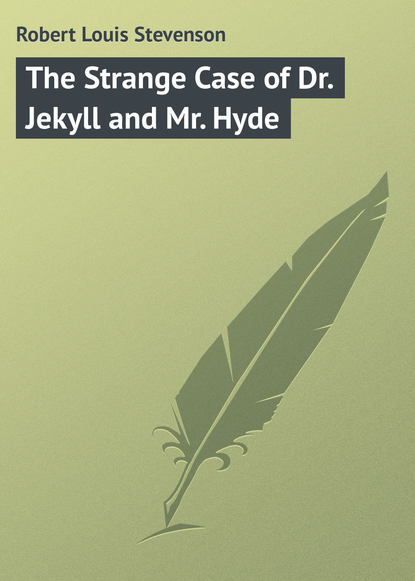
Полная версия
Lay Morals, and Other Papers
Mankind, in the sense of the creeping mass that is born and eats, that generates and dies, is but the aggregate of the outer and lower sides of man. This inner consciousness, this lantern alternately obscured and shining, to and by which the individual exists and must order his conduct, is something special to himself and not common to the race. His joys delight, his sorrows wound him, according as this is interested or indifferent in the affair; according as they arise in an imperial war or in a broil conducted by the tributary chieftains of the mind. He may lose all, and this not suffer; he may lose what is materially a trifle, and this leap in his bosom with a cruel pang. I do not speak of it to hardened theorists: the living man knows keenly what it is I mean.
‘Perceive at last that thou hast in thee something better and more divine than the things which cause the various effects, and, as it were, pull thee by the strings. What is that now in thy mind? is it fear, or suspicion, or desire, or anything of that kind?’ Thus far Marcus Aurelius, in one of the most notable passages in any book. Here is a question worthy to be answered. What is in thy mind? What is the utterance of your inmost self when, in a quiet hour, it can be heard intelligibly? It is something beyond the compass of your thinking, inasmuch as it is yourself; but is it not of a higher spirit than you had dreamed betweenwhiles, and erect above all base considerations? This soul seems hardly touched with our infirmities; we can find in it certainly no fear, suspicion, or desire; we are only conscious – and that as though we read it in the eyes of some one else – of a great and unqualified readiness. A readiness to what? to pass over and look beyond the objects of desire and fear, for something else. And this something else? this something which is apart from desire and fear, to which all the kingdoms of the world and the immediate death of the body are alike indifferent and beside the point, and which yet regards conduct – by what name are we to call it? It may be the love of God; or it may be an inherited (and certainly well concealed) instinct to preserve self and propagate the race; I am not, for the moment, averse to either theory; but it will save time to call it righteousness. By so doing I intend no subterfuge to beg a question; I am indeed ready, and more than willing, to accept the rigid consequence, and lay aside, as far as the treachery of the reason will permit, all former meanings attached to the word righteousness. What is right is that for which a man’s central self is ever ready to sacrifice immediate or distant interests; what is wrong is what the central self discards or rejects as incompatible with the fixed design of righteousness.
To make this admission is to lay aside all hope of definition. That which is right upon this theory is intimately dictated to each man by himself, but can never be rigorously set forth in language, and never, above all, imposed upon another. The conscience has, then, a vision like that of the eyes, which is incommunicable, and for the most part illuminates none but its possessor. When many people perceive the same or any cognate facts, they agree upon a word as symbol; and hence we have such words as tree, star, love, honour, or death; hence also we have this word right, which, like the others, we all understand, most of us understand differently, and none can express succinctly otherwise. Yet even on the straitest view, we can make some steps towards comprehension of our own superior thoughts. For it is an incredible and most bewildering fact that a man, through life, is on variable terms with himself; he is aware of tiffs and reconciliations; the intimacy is at times almost suspended, at times it is renewed again with joy. As we said before, his inner self or soul appears to him by successive revelations, and is frequently obscured. It is from a study of these alternations that we can alone hope to discover, even dimly, what seems right and what seems wrong to this veiled prophet of ourself.
All that is in the man in the larger sense, what we call impression as well as what we call intuition, so far as my argument looks, we must accept. It is not wrong to desire food, or exercise, or beautiful surroundings, or the love of sex, or interest which is the food of the mind. All these are craved; all these should be craved; to none of these in itself does the soul demur; where there comes an undeniable want, we recognise a demand of nature. Yet we know that these natural demands may be superseded; for the demands which are common to mankind make but a shadowy consideration in comparison to the demands of the individual soul. Food is almost the first prerequisite; and yet a high character will go without food to the ruin and death of the body rather than gain it in a manner which the spirit disavows. Pascal laid aside mathematics; Origen doctored his body with a knife; every day some one is thus mortifying his dearest interests and desires, and, in Christ’s words, entering maim into the Kingdom of Heaven. This is to supersede the lesser and less harmonious affections by renunciation; and though by this ascetic path we may get to heaven, we cannot get thither a whole and perfect man. But there is another way, to supersede them by reconciliation, in which the soul and all the faculties and senses pursue a common route and share in one desire. Thus, man is tormented by a very imperious physical desire; it spoils his rest, it is not to be denied; the doctors will tell you, not I, how it is a physical need, like the want of food or slumber. In the satisfaction of this desire, as it first appears, the soul sparingly takes part; nay, it oft unsparingly regrets and disapproves the satisfaction. But let the man learn to love a woman as far as he is capable of love; and for this random affection of the body there is substituted a steady determination, a consent of all his powers and faculties, which supersedes, adopts, and commands the other. The desire survives, strengthened, perhaps, but taught obedience and changed in scope and character. Life is no longer a tale of betrayals and regrets; for the man now lives as a whole; his consciousness now moves on uninterrupted like a river; through all the extremes and ups and downs of passion, he remains approvingly conscious of himself.
Now to me, this seems a type of that rightness which the soul demands. It demands that we shall not live alternately with our opposing tendencies in continual see-saw of passion and disgust, but seek some path on which the tendencies shall no longer oppose, but serve each other to a common end. It demands that we shall not pursue broken ends, but great and comprehensive purposes, in which soul and body may unite like notes in a harmonious chord. That were indeed a way of peace and pleasure, that were indeed a heaven upon earth. It does not demand, however, or, to speak in measure, it does not demand of me, that I should starve my appetites for no purpose under heaven but as a purpose in itself; or, in a weak despair, pluck out the eye that I have not yet learned to guide and enjoy with wisdom. The soul demands unity of purpose, not the dismemberment of man; it seeks to roll up all his strength and sweetness, all his passion and wisdom, into one, and make of him a perfect man exulting in perfection. To conclude ascetically is to give up, and not to solve, the problem. The ascetic and the creeping hog, although they are at different poles, have equally failed in life. The one has sacrificed his crew; the other brings back his seamen in a cock-boat, and has lost the ship. I believe there are not many sea-captains who would plume themselves on either result as a success.
But if it is righteousness thus to fuse together our divisive impulses and march with one mind through life, there is plainly one thing more unrighteous than all others, and one declension which is irretrievable and draws on the rest. And this is to lose consciousness of oneself. In the best of times, it is but by flashes, when our whole nature is clear, strong and conscious, and events conspire to leave us free, that we enjoy communion with our soul. At the worst, we are so fallen and passive that we may say shortly we have none. An arctic torpor seizes upon men. Although built of nerves, and set adrift in a stimulating world, they develop a tendency to go bodily to sleep; consciousness becomes engrossed among the reflex and mechanical parts of life; and soon loses both the will and power to look higher considerations in the face. This is ruin; this is the last failure in life; this is temporal damnation, damnation on the spot and without the form of judgment. ‘What shall it profit a man if he gain the whole world and lose himself?’
It is to keep a man awake, to keep him alive to his own soul and its fixed design of righteousness, that the better part of moral and religious education is directed; not only that of words and doctors, but the sharp ferule of calamity under which we are all God’s scholars till we die. If, as teachers, we are to say anything to the purpose, we must say what will remind the pupil of his soul; we must speak that soul’s dialect; we must talk of life and conduct as his soul would have him think of them. If, from some conformity between us and the pupil, or perhaps among all men, we do in truth speak in such a dialect and express such views, beyond question we shall touch in him a spring; beyond question he will recognise the dialect as one that he himself has spoken in his better hours; beyond question he will cry, ‘I had forgotten, but now I remember; I too have eyes, and I had forgot to use them! I too have a soul of my own, arrogantly upright, and to that I will listen and conform.’ In short, say to him anything that he has once thought, or been upon the point of thinking, or show him any view of life that he has once clearly seen, or been upon the point of clearly seeing; and you have done your part and may leave him to complete the education for himself.
Now, the view taught at the present time seems to me to want greatness; and the dialect in which alone it can be intelligibly uttered is not the dialect of my soul. It is a sort of postponement of life; nothing quite is, but something different is to be; we are to keep our eyes upon the indirect from the cradle to the grave. We are to regulate our conduct not by desire, but by a politic eye upon the future; and to value acts as they will bring us money or good opinion; as they will bring us, in one word, profit. We must be what is called respectable, and offend no one by our carriage; it will not do to make oneself conspicuous – who knows? even in virtue? says the Christian parent! And we must be what is called prudent and make money; not only because it is pleasant to have money, but because that also is a part of respectability, and we cannot hope to be received in society without decent possessions. Received in society! as if that were the kingdom of heaven! There is dear Mr. So-and-so; – look at him! – so much respected – so much looked up to – quite the Christian merchant! And we must cut our conduct as strictly as possible after the pattern of Mr. So-and-so; and lay our whole lives to make money and be strictly decent. Besides these holy injunctions, which form by far the greater part of a youth’s training in our Christian homes, there are at least two other doctrines. We are to live just now as well as we can, but scrape at last into heaven, where we shall be good. We are to worry through the week in a lay, disreputable way, but, to make matters square, live a different life on Sunday.
The train of thought we have been following gives us a key to all these positions, without stepping aside to justify them on their own ground. It is because we have been disgusted fifty times with physical squalls, and fifty times torn between conflicting impulses, that we teach people this indirect and tactical procedure in life, and to judge by remote consequences instead of the immediate face of things. The very desire to act as our own souls would have us, coupled with a pathetic disbelief in ourselves, moves us to follow the example of others; perhaps, who knows? they may be on the right track; and the more our patterns are in number, the better seems the chance; until, if we be acting in concert with a whole civilised nation, there are surely a majority of chances that we must be acting right. And again, how true it is that we can never behave as we wish in this tormented sphere, and can only aspire to different and more favourable circumstances, in order to stand out and be ourselves wholly and rightly! And yet once more, if in the hurry and pressure of affairs and passions you tend to nod and become drowsy, here are twenty-four hours of Sunday set apart for you to hold counsel with your soul and look around you on the possibilities of life.
This is not, of course, all that is to be, or even should be, said for these doctrines. Only, in the course of this chapter, the reader and I have agreed upon a few catchwords, and been looking at morals on a certain system; it was a pity to lose an opportunity of testing the catchwords, and seeing whether, by this system as well as by others, current doctrines could show any probable justification. If the doctrines had come too badly out of the trial, it would have condemned the system. Our sight of the world is very narrow; the mind but a pedestrian instrument; there’s nothing new under the sun, as Solomon says, except the man himself; and though that changes the aspect of everything else, yet he must see the same things as other people, only from a different side.
And now, having admitted so much, let us turn to criticism.
If you teach a man to keep his eyes upon what others think of him, unthinkingly to lead the life and hold the principles of the majority of his contemporaries, you must discredit in his eyes the one authoritative voice of his own soul. He may be a docile citizen; he will never be a man. It is ours, on the other hand, to disregard this babble and chattering of other men better and worse than we are, and to walk straight before us by what light we have. They may be right; but so, before heaven, are we. They may know; but we know also, and by that knowledge we must stand or fall. There is such a thing as loyalty to a man’s own better self; and from those who have not that, God help me, how am I to look for loyalty to others? The most dull, the most imbecile, at a certain moment turn round, at a certain point will hear no further argument, but stand unflinching by their own dumb, irrational sense of right. It is not only by steel or fire, but through contempt and blame, that the martyr fulfils the calling of his dear soul. Be glad if you are not tried by such extremities. But although all the world ranged themselves in one line to tell you ‘This is wrong,’ be you your own faithful vassal and the ambassador of God – throw down the glove and answer ‘This is right.’ Do you think you are only declaring yourself? Perhaps in some dim way, like a child who delivers a message not fully understood, you are opening wider the straits of prejudice and preparing mankind for some truer and more spiritual grasp of truth; perhaps, as you stand forth for your own judgment, you are covering a thousand weak ones with your body; perhaps, by this declaration alone, you have avoided the guilt of false witness against humanity and the little ones unborn. It is good, I believe, to be respectable, but much nobler to respect oneself and utter the voice of God. God, if there be any God, speaks daily in a new language by the tongues of men; the thoughts and habits of each fresh generation and each new-coined spirit throw another light upon the universe and contain another commentary on the printed Bibles; every scruple, every true dissent, every glimpse of something new, is a letter of God’s alphabet; and though there is a grave responsibility for all who speak, is there none for those who unrighteously keep silence and conform? Is not that also to conceal and cloak God’s counsel? And how should we regard the man of science who suppressed all facts that would not tally with the orthodoxy of the hour?
Wrong? You are as surely wrong as the sun rose this morning round the revolving shoulder of the world. Not truth, but truthfulness, is the good of your endeavour. For when will men receive that first part and prerequisite of truth, that, by the order of things, by the greatness of the universe, by the darkness and partiality of man’s experience, by the inviolate secrecy of God, kept close in His most open revelations, every man is, and to the end of the ages must be, wrong? Wrong to the universe; wrong to mankind; wrong to God. And yet in another sense, and that plainer and nearer, every man of men, who wishes truly, must be right. He is right to himself, and in the measure of his sagacity and candour. That let him do in all sincerity and zeal, not sparing a thought for contrary opinions; that, for what it is worth, let him proclaim. Be not afraid; although he be wrong, so also is the dead, stuffed Dagon he insults. For the voice of God, whatever it is, is not that stammering, inept tradition which the people holds. These truths survive in travesty, swamped in a world of spiritual darkness and confusion; and what a few comprehend and faithfully hold, the many, in their dead jargon, repeat, degrade, and misinterpret.
So far of Respectability; what the Covenanters used to call ‘rank conformity’: the deadliest gag and wet blanket that can be laid on men. And now of Profit. And this doctrine is perhaps the more redoubtable, because it harms all sorts of men; not only the heroic and self-reliant, but the obedient, cowlike squadrons. A man, by this doctrine, looks to consequences at the second, or third, or fiftieth turn. He chooses his end, and for that, with wily turns and through a great sea of tedium, steers this mortal bark. There may be political wisdom in such a view; but I am persuaded there can spring no great moral zeal. To look thus obliquely upon life is the very recipe for moral slumber. Our intention and endeavour should be directed, not on some vague end of money or applause, which shall come to us by a ricochet in a month or a year, or twenty years, but on the act itself; not on the approval of others, but on the rightness of that act. At every instant, at every step in life, the point has to be decided, our soul has to be saved, heaven has to be gained or lost. At every step our spirits must applaud, at every step we must set down the foot and sound the trumpet. ‘This have I done,’ we must say; ‘right or wrong, this have I done, in unfeigned honour of intention, as to myself and God.’ The profit of every act should be this, that it was right for us to do it. Any other profit than that, if it involved a kingdom or the woman I love, ought, if I were God’s upright soldier, to leave me untempted.
It is the mark of what we call a righteous decision, that it is made directly and for its own sake. The whole man, mind and body, having come to an agreement, tyrannically dictates conduct. There are two dispositions eternally opposed: that in which we recognise that one thing is wrong and another right, and that in which, not seeing any clear distinction, we fall back on the consideration of consequences. The truth is, by the scope of our present teaching, nothing is thought very wrong and nothing very right, except a few actions which have the disadvantage of being disrespectable when found out; the more serious part of men inclining to think all things rather wrong, the more jovial to suppose them right enough for practical purposes. I will engage my head, they do not find that view in their own hearts; they have taken it up in a dark despair; they are but troubled sleepers talking in their sleep. The soul, or my soul at least, thinks very distinctly upon many points of right and wrong, and often differs flatly with what is held out as the thought of corporate humanity in the code of society or the code of law. Am I to suppose myself a monster? I have only to read books, the Christian Gospels for example, to think myself a monster no longer; and instead I think the mass of people are merely speaking in their sleep.
It is a commonplace, enshrined, if I mistake not, even in school copy-books, that honour is to be sought and not fame. I ask no other admission; we are to seek honour, upright walking with our own conscience every hour of the day, and not fame, the consequence, the far-off reverberation of our footsteps. The walk, not the rumour of the walk, is what concerns righteousness. Better disrespectable honour than dishonourable fame. Better useless or seemingly hurtful honour, than dishonour ruling empires and filling the mouths of thousands. For the man must walk by what he sees, and leave the issue with God who made him and taught him by the fortune of his life. You would not dishonour yourself for money; which is at least tangible; would you do it, then, for a doubtful forecast in politics, or another person’s theory in morals?
So intricate is the scheme of our affairs, that no man can calculate the bearing of his own behaviour even on those immediately around him, how much less upon the world at large or on succeeding generations! To walk by external prudence and the rule of consequences would require, not a man, but God. All that we know to guide us in this changing labyrinth is our soul with its fixed design of righteousness, and a few old precepts which commend themselves to that. The precepts are vague when we endeavour to apply them; consequences are more entangled than a wisp of string, and their confusion is unrestingly in change; we must hold to what we know and walk by it. We must walk by faith, indeed, and not by knowledge.
You do not love another because he is wealthy or wise or eminently respectable: you love him because you love him; that is love, and any other only a derision and grimace. It should be the same with all our actions. If we were to conceive a perfect man, it should be one who was never torn between conflicting impulses, but who, on the absolute consent of all his parts and faculties, submitted in every action of his life to a self-dictation as absolute and unreasoned as that which bids him love one woman and be true to her till death. But we should not conceive him as sagacious, ascetical, playing off his appetites against each other, turning the wing of public respectable immorality instead of riding it directly down, or advancing toward his end through a thousand sinister compromises and considerations. The one man might be wily, might be adroit, might be wise, might be respectable, might be gloriously useful; it is the other man who would be good.
The soul asks honour and not fame; to be upright, not to be successful; to be good, not prosperous; to be essentially, not outwardly, respectable. Does your soul ask profit? Does it ask money? Does it ask the approval of the indifferent herd? I believe not. For my own part, I want but little money, I hope; and I do not want to be decent at all, but to be good.
CHAPTER IV
We have spoken of that supreme self-dictation which keeps varying from hour to hour in its dictates with the variation of events and circumstances. Now, for us, that is ultimate. It may be founded on some reasonable process, but it is not a process which we can follow or comprehend. And moreover the dictation is not continuous, or not continuous except in very lively and well-living natures; and between-whiles we must brush along without it. Practice is a more intricate and desperate business than the toughest theorising; life is an affair of cavalry, where rapid judgment and prompt action are alone possible and right. As a matter of fact, there is no one so upright but he is influenced by the world’s chatter; and no one so headlong but he requires to consider consequences and to keep an eye on profit. For the soul adopts all affections and appetites without exception, and cares only to combine them for some common purpose which shall interest all. Now, respect for the opinion of others, the study of consequences, and the desire of power and comfort, are all undeniably factors in the nature of man; and the more undeniably since we find that, in our current doctrines, they have swallowed up the others and are thought to conclude in themselves all the worthy parts of man. These, then, must also be suffered to affect conduct in the practical domain, much or little according as they are forcibly or feebly present to the mind of each.












